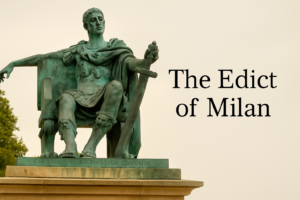Secularism is a system of thought advocating for the separation of religious institutions and beliefs from state affairs and public life. This approach emphasizes that individuals should have equal rights regardless of their religious beliefs and that the state should remain neutral. Secularism is considered one of the fundamental principles of modern democracies and is implemented differently across various countries.
The origins of secularism can be traced back to the European Enlightenment. During the 17th and 18th centuries, scientific discoveries and rational thought led to the questioning of religious dogmas and the secularization of society. Thinkers such as John Locke, Voltaire, and Thomas Jefferson argued for the separation of religion and state, and these ideas laid the foundation for modern secular states.
The core principles of secularism include state neutrality, religious freedom, and equality. The state should treat all its citizens equally and should not support any particular religion. This protects religious freedom and prevents religious conflicts. Additionally, secularism advocates for the removal of religious influences from education and legal systems.
The implementation of secularism varies across different countries due to cultural and historical differences. For example, France has a strict secularism policy, clearly delineating the boundary between state affairs and religious symbols. In the United States, the principle of religious freedom and the state’s non-support of religion is enshrined in the Constitution, but religion is not entirely excluded from public life. Turkey became a secular state through the secularization process that began in the 1920s, and this principle is one of the cornerstones of the Republic of Turkey.
The societal and political impacts of secularism are extensive. Secular states protect the rights of religious minorities, ensuring social peace and promoting religious tolerance. Secularism also enables individuals to live free from religious coercion, contributing to the expansion of personal freedoms. However, there are challenges in the implementation of secularism. For instance, religious groups may sometimes perceive secular policies as a threat to their beliefs, leading to social tensions.
Today, secularism remains a significant topic of debate, and the balance between religious and secular forces continues to be sought in many countries. In regions like the Middle East and Asia, where religious identities are strong, discussions about secularism are particularly intense. Meanwhile, in the West, with the strengthening of secular values, the role of religion in public life is gradually diminishing.
In conclusion, secularism is a principle advocating for the separation of state and religion, playing an important role in the development of modern societies. This approach protects individual freedoms and contributes to social peace. The impact of secularism on different cultures and societies demonstrates the universal value of this principle.
Summary
Secularism is a system of thought that advocates for the separation of religious institutions and beliefs from state affairs and public life. This approach emphasizes that individuals should have equal rights regardless of their religious beliefs, and that the state should remain neutral.













